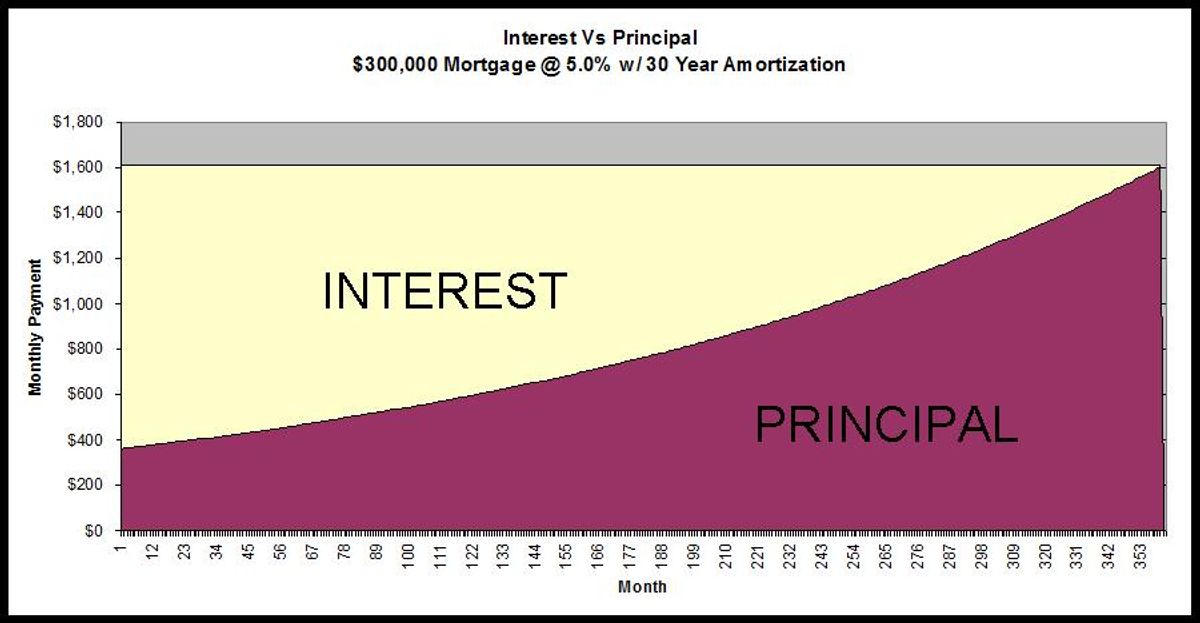Ensuring timely payments when exporting electronics to Germany requires a deep understanding of the market, effective debt collection strategies, and risk mitigation. The article provides insights into the German electronics export landscape, outlines strategies for debt collection, discusses how to mitigate risks in international trade, explains how to optimize payment processes, and examines the role of professional collection agencies.
Key Takeaways
- Understanding the demand trends and regulatory requirements in Germany is crucial for successful electronics exports and timely payments.
- A three-phase recovery system, which includes skip-tracing and legal actions, can significantly improve debt collection effectiveness.
- Assessing debtor’s financial stability and leveraging investigative techniques are key to mitigating risks in international trade.
- Streamlining invoicing and adopting technological solutions for payment tracking can optimize the payment process for exporters.
- Engaging professional collection agencies with competitive rates can be beneficial, but it’s important to understand the associated costs and choose the right agency.
Understanding the Electronics Export Landscape in Germany
Market Dynamics and Demand Trends
We’re at the forefront of the electronics export sector, keenly observing the ebb and flow of market demands. Germany’s appetite for cutting-edge technology drives our exports, yet we’re mindful of the volatility that can impact our bottom line. Navigating this landscape requires agility and foresight.
Our focus spans various industries, with particular attention to the automotive sector, luxury goods, and environmental technology. Each presents unique payment collection challenges:
- The automotive industry demands precision and timely delivery, yet recovering payments can be as complex as the technology we provide.
- In luxury goods, the exclusivity of our products doesn’t always guarantee swift settlement of accounts.
- Environmental technology trade is burgeoning, but collecting debts remains a delicate process, often entangled in regulatory red tape.
We’re committed to understanding these dynamics to ensure timely payments and maintain a healthy cash flow. Our strategies are tailored to the nuances of each sector, ensuring we’re not just reacting to market trends but actively shaping our approach to secure our financial interests.
Regulatory Environment and Compliance
We navigate the complex web of German regulations with precision. Compliance is key to ensuring timely payments in electronics exports. We must adhere to stringent export controls, tax laws, and trade agreements.
- Understand the EU’s Dual-Use Regulation for sensitive technology.
- Stay updated on the German Federal Office for Economic Affairs and Export Control (BAFA) guidelines.
- Ensure all electronic goods meet the CE marking requirements for safety standards.
Our proactive approach to compliance mitigates risks and avoids costly delays.
By mastering the regulatory environment, we protect our interests and secure our financial transactions. It’s not just about following rules—it’s about paving the way for smooth and successful trade.
Challenges in Cross-Border Transactions
We face a myriad of hurdles when collecting payments for our electronics exports to Germany. The German automotive industry, a significant consumer of electronics, presents unique challenges. International debt collection is a complex endeavor, compounded by differences in legal systems and cultural practices. It’s a lucrative but complex process.
Our experience shows that understanding these challenges is crucial for successful transactions.
To navigate these waters, we’ve developed a three-phase recovery system. In the first phase, we initiate contact and skip-trace debtors. If unresolved, we proceed to phase two, involving our affiliated attorneys. The final phase hinges on a critical decision: to litigate or not. Litigation brings upfront costs, but no recovery means no fees—our commitment to a fair deal.
Our competitive collection rates are tailored to the volume and age of claims, ensuring you get the best service without overpaying. We’re transparent about our fees, so you’re never in the dark.
Strategies for Effective Debt Collection
Implementing a Three-Phase Recovery System
Our recovery system for tech exports to Germany involves a structured three-phase approach. Phase One kicks off within 24 hours of placing an account. We send out demand letters, conduct skip-tracing, and make persistent contact attempts. If unresolved, we escalate to Phase Two, where our affiliated attorneys step in with legal demands.
By Phase Three, we’re at a crossroads. Decision Making is critical here. We either recommend case closure or proceed with litigation, based on a thorough investigation. Should we move forward with legal action, upfront costs will apply, but our competitive collection rates ensure you’re not overburdened financially.
Our commitment is clear: maximize recovery while minimizing your costs. We tailor our rates to the number of claims and age of accounts, ensuring fairness and transparency.
Here’s a quick glance at our collection rates:
- For 1-9 claims:
- Accounts under 1 year: 30%
- Accounts over 1 year: 40%
- Accounts under $1000: 50%
- Accounts with an attorney: 50%
- For 10+ claims:
- Accounts under 1 year: 27%
- Accounts over 1 year: 35%
- Accounts under $1000: 40%
- Accounts with an attorney: 50%
Navigating Legal Actions and Associated Costs
When we face the crossroads of legal action, the path we choose is critical. We weigh the potential for recovery against the upfront costs and decide if litigation is the right move. If the facts and debtor’s assets suggest a low recovery chance, we recommend case closure, at no cost to you. However, if litigation seems viable, you’ll need to consider the initial legal expenses, typically between $600 to $700.
Legal costs are just the beginning. You must also factor in our collection rates, which vary based on claim quantity and age. For instance, accounts under a year old are charged at 30% of the amount collected, while older accounts or those under $1000 incur higher rates. Choosing to litigate means committing to these costs, with the understanding that unsuccessful attempts will not result in additional fees.
Our commitment is to provide transparent and competitive rates, ensuring you’re equipped with the full financial picture before proceeding.
Remember, strategic planning and a thorough cost-benefit analysis are essential for ensuring timely payments. Our three-phase recovery system is designed to navigate these waters effectively, offering you peace of mind and a clear course of action.
Leveraging Competitive Collection Rates
We understand the importance of competitive collection rates in the recovery of unsettled payments. Our tiered pricing structure ensures that you pay only for successful collections, aligning our interests with yours. The more claims you submit, the lower the percentage we take.
For instance, for fewer than ten claims, the rates are as follows:
- Accounts under 1 year old: 30% of the amount collected.
- Accounts over 1 year old: 40% of the amount collected.
- Accounts under $1000.00: 50% of the amount collected.
By submitting ten or more claims, you benefit from reduced rates, incentivizing bulk submissions and fostering a cost-effective partnership.
Our approach is designed to adapt to the varying challenges in collecting payments, whether it’s for exports to the German automotive industry, luxury goods, or environmental technology trade. We’re committed to providing value while ensuring your financial interests are protected.
Mitigating Risks in International Trade
Assessing the Financial Stability of Debtors
Before we dive into recovery strategies, we must first assess the financial stability of our debtors. Knowing their fiscal health is crucial to determining the likelihood of successful debt recovery. We start with a comprehensive skip-tracing process to uncover the most current financial data.
Our approach includes:
- Reviewing credit reports and payment histories
- Analyzing financial statements and asset ownership
- Investigating any recent business activities that may impact solvency
By meticulously evaluating these factors, we can make informed decisions on whether to proceed with collection efforts or to recommend closure of the case.
When we identify a debtor’s weak financial position early, we save time and resources. This preemptive step is a cornerstone of our three-phase recovery system, ensuring we pursue only those cases with a tangible chance of payment.
Utilizing Skip-Tracing and Investigative Techniques
We harness the power of skip-tracing and investigative techniques to pierce the veil of debtor anonymity. Our proactive approach ensures no stone is left unturned in the pursuit of owed funds. By meticulously gathering financial and contact information, we lay the groundwork for effective recovery actions.
- Initial skip-tracing to locate debtor assets and contact details
- Daily attempts to engage debtors for 30 to 60 days
- Escalation to legal action if standard collection efforts fail
We stand firm in our commitment to recover what is rightfully yours, employing every tool at our disposal to navigate the complexities of international debt collection.
Our three-phase recovery system is designed to adapt to the evolving situation, with each phase tailored to maximize the chances of settlement. Articles discuss recovering unsettled payments in luxury goods exports and environmental technology trade with Germany, emphasizing legal frameworks and debt collection strategies. This multi-tiered strategy underscores our dedication to securing timely payments for your electronics exports.
Ensuring Adequate Legal Representation
When we decide to escalate the recovery process, adequate legal representation is crucial. We weigh the potential for recovery against the costs involved. If litigation is advised, we’re transparent about the upfront legal fees required—typically between $600 to $700. These cover court costs and filing fees, ensuring we can pursue all monies owed.
Our competitive collection rates are tailored to the number of claims and their age. For instance, accounts under a year old are charged at 30% of the amount collected if there are fewer than ten claims. This rate is a key factor in deciding whether to proceed with legal action.
We must be strategic in our approach, considering the financial stability of the debtor and the likelihood of successful recovery. If litigation seems unfruitful, we recommend closing the case, with no cost to you. This decision is pivotal in managing the risks associated with international trade and ensuring timely payments.
Optimizing Payment Processes for Exporters
Streamlining Invoicing and Payment Follow-ups
We understand the importance of efficient transactions in the electronics export business. By leveraging technology, we can ensure that invoicing and payment follow-ups are not only timely but also less labor-intensive. Automated invoicing systems are key to achieving this. They allow for quick generation and distribution of invoices, with the added benefit of real-time tracking and reminders for overdue payments.
To further streamline the process, we adopt a structured approach:
- Implement electronic invoicing systems to reduce paper waste and speed up delivery.
- Use automation tools to schedule follow-ups and reminders for payments.
- Integrate trade finance solutions to manage and forecast cash flow effectively.
By consistently applying these methods, we minimize the risk of delayed payments and maintain a steady cash flow, which is crucial for the health of our business.
Our goal is to create a seamless payment experience for both us and our German partners, ensuring that all parties are on the same page when it comes to financial transactions. This proactive stance not only enhances our reputation but also builds trust with our buyers, paving the way for long-term business relationships.
Adopting Technology for Efficient Payment Tracking
In our quest for efficiency, we’ve embraced technology to track payments meticulously. Automated systems now spearhead the monitoring of incoming funds, ensuring we’re always on top of our financial flows. With real-time updates, we can swiftly identify delays or discrepancies in payments.
- Implement robust software solutions for payment tracking
- Set up alerts for overdue payments
- Utilize dashboards for a comprehensive financial overview
By integrating advanced payment tracking technologies, we’ve significantly reduced the time spent on manual follow-ups, allowing us to focus on more strategic aspects of our business.
The adoption of these systems not only streamlines our operations but also provides transparency and builds trust with our German counterparts. It’s a win-win for all parties involved.
Building Strong Relationships with Foreign Buyers
We understand that trust is the cornerstone of any successful international trade relationship. Building strong relationships with foreign buyers is not just about securing a single transaction; it’s about creating a partnership that fosters repeat business and timely payments.
- Engage in regular communication to understand their needs and expectations.
- Offer flexible payment terms when possible to accommodate their financial cycles.
- Provide exceptional after-sales support to demonstrate commitment to their satisfaction.
By prioritizing these relationships, we not only increase the likelihood of on-time payments but also open doors to new opportunities and market insights.
Remember, a satisfied customer is more likely to be a prompt payer. It’s in our best interest to ensure that our buyers feel valued and supported throughout the entire sales process. This approach not only enhances our reputation but also solidifies our financial security through reliable revenue streams.
The Role of Professional Collection Agencies
Evaluating the Benefits of Agency Intervention
When we consider the intervention of a professional collection agency, we’re looking at a strategic partnership that can significantly enhance our recovery efforts. Agencies specialize in recovering unpaid invoices, bringing a level of expertise and resources that can be pivotal for success. With their skip-tracing techniques and investigative prowess, agencies can locate debtors and assets that might otherwise remain hidden from us.
- Agencies streamline the recovery process, freeing up our time to focus on core business activities.
- They understand the nuances of collecting payments for exports, including those to the German automotive industry.
- Professional agencies are adept at navigating the legal landscape, which can be particularly complex in cross-border transactions.
By leveraging the services of a collection agency, we can mitigate the risks associated with unsettled payments and improve our chances of successful debt recovery.
It’s crucial to weigh the potential benefits against the costs involved. Agencies offer competitive collection rates, but we must be mindful of the fees, especially when legal action is required. The decision to engage an agency should be based on a careful assessment of their ability to deliver results in a cost-effective manner.
Understanding Agency Fees and Service Rates
When we partner with a collection agency, understanding their fees and service rates is crucial. Our goal is to maximize recovery while minimizing costs. Agencies typically charge a percentage of the amount collected, with rates varying based on factors such as the age of the account and the total number of claims.
For instance, accounts under one year may incur a 30% fee, while older accounts could be charged up to 40%. Smaller debts under $1000 often have higher rates due to the increased effort required for collection. Should legal action be necessary, a flat fee for attorney involvement is common, usually around 50% of the amount collected.
It’s essential to weigh the potential recovery against the fees to ensure a cost-effective approach.
Here’s a quick breakdown of typical agency rates:
- Accounts under 1 year: 30% (1-9 claims) or 27% (10+ claims)
- Accounts over 1 year: 40% (1-9 claims) or 35% (10+ claims)
- Accounts under $1000: 50% regardless of claim count
- Legal action involvement: 50% of the amount collected
Remember, these rates are indicative and can vary. Agencies may offer competitive rates to secure your business, especially when multiple claims are involved. It’s imperative to negotiate terms that align with our financial objectives and the complexities of international trade.
Choosing the Right Agency for Your Business Needs
When we’re on the hunt for a debt collection agency that aligns with our business ethos, we must weigh their expertise against the legal framework in Germany. It’s not just about recovering debts; it’s about doing so efficiently and ethically. Our agency of choice should have a proven track record in the German market, ensuring they understand the nuances of local laws and debtor behavior.
- Assess the agency’s success rate and recovery system.
- Verify their understanding of German legal compliance.
- Consider the transparency of their fee structure.
We must establish clear payment terms from the outset and choose an agency that respects and enforces these terms with professionalism.
Remember, the right agency is not just a service provider; they are our partner in navigating the complexities of international trade. Their role is crucial in maintaining the financial health of our exports business.
Professional collection agencies play a crucial role in maintaining the financial health of businesses by efficiently recovering owed funds. At Debt Collectors International, we specialize in providing tailored debt collection solutions that cater to various industries, ensuring maximum recovery with minimal hassle. Our experienced team is ready to assist you with dispute resolution, skip tracing, asset location, and judgment enforcement. Don’t let unpaid debts affect your bottom line. Visit our website to learn more about our services and take the first step towards reclaiming your finances.
Frequently Asked Questions
What is the three-phase recovery system for debt collection in Germany?
The three-phase recovery system includes: Phase One, where initial contact and demands are made to the debtor; Phase Two, where the case is forwarded to an affiliated attorney within the debtor’s jurisdiction; and Phase Three, which involves a decision on whether to close the case or proceed with litigation based on the likelihood of recovery.
What happens if the possibility of recovery is not likely in Phase Three?
If, after investigation, it’s determined that recovery is not likely, the recommendation will be to close the case. You will owe nothing to the firm or the affiliated attorney for these results.
What are the upfront legal costs if I decide to proceed with legal action?
If you decide to proceed with legal action, you will be required to pay upfront costs such as court costs and filing fees, typically ranging from $600.00 to $700.00, depending on the debtor’s jurisdiction.
How are collection rates determined for electronics exports to Germany?
Collection rates are competitive and tailored, depending on the number of claims and the age and amount of the accounts. For example, accounts under 1 year in age can have a rate of 30% of the amount collected if fewer than 10 claims are submitted.
What if all attempts to collect the debt fail after litigation?
If attempts to collect via litigation fail, the case will be closed, and you will owe nothing to the firm or the affiliated attorney.
How can I assess the financial stability of a debtor in Germany?
You can assess the financial stability of a debtor by utilizing skip-tracing and investigative techniques to obtain the best financial and contact information available on the debtors.





